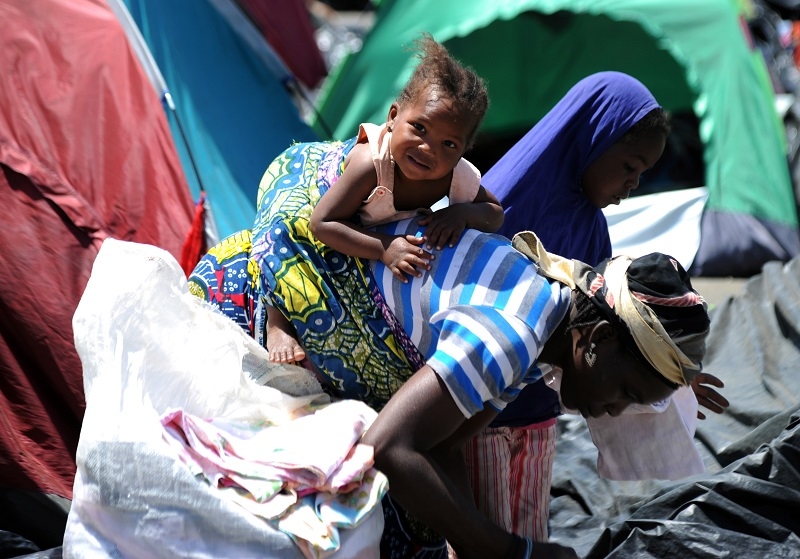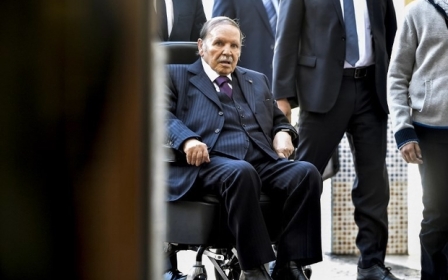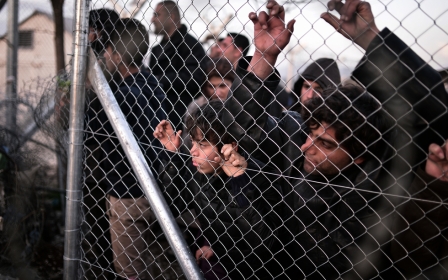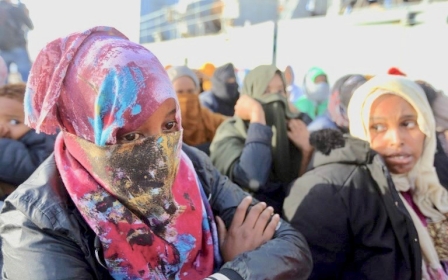Algeria frets over rise in migrants as Europe tightens controls

Algeria expects to have to accommodate more illegal migrants from sub-Saharan Africa after the European Union made it more difficult to reach Europe by boat, a senior official in the country's interior ministry said on Thursday.
A 2016 EU agreement with Turkey all but closed the sea route to the Greek islands that almost a million people took in 2015. Departures have also fallen from the latest main departure point, Libya, because of EU support for the Libyan coastguard. Italy is also helping Tunisia to stop boat departures.
"We are now at tens of thousands (of illegal migrants), but in the near future we can talk about hundreds of thousands after Europe closed its doors," Hassen Kacimi, interior ministry official in charge of illegal migration, told reporters.
"The solution is not to close the borders from one side and let people die on the other side," he said.
"Algeria is very concerned by the growing numbers of illegal migrants."
He said his country, which has a 2,500km border with Mali and Niger, had spent $20m in the past three years to handle an influx of illegal migrants from the Sahel region fleeing war, insecurity or poverty.
"Nobody has helped us, we are handling the situation with our own means," Kacimi said.
He also rejected accusations from rights group, including Human Rights Watch and Amnesty International, that migrants were deported in a degrading way.
"We are not Nazis, and migrants never die in Algeria," Kacimi said.
Mediterranean deaths
On Thursday, the Spanish coastguard said five migrants had died trying to cross the Mediterranean after they rescued more than 180 others, while they searched for another two boats with dozens aboard.
Rescue boats, helicopters and planes from southern Spain carried out a series of rescue operations late on Wednesday and Thursday, a spokeswoman said.
Since Wednesday evening, 185 people in five boats had been rescued.
But at least one boat had capsized, and four migrants were already dead in the water some 40 kilometres off Morocco's coast when rescuers arrived, she said.
Another of those rescued died later of cardiac arrest.
On Thursday, the coastguards were searching for another two boats in the Mediterranean with at least 45 people on board.
Initially, helicopters and planes had been grounded because of bad weather but they were eventually able to fly, joining rescue boats in the search.
The news came as police said they had arrested 19 people for illegally transporting migrants across the Strait of Gibraltar to Spain using jet skis or small inflatable boats.
They allegedly charged 4,000 euros ($4,900) per crossing and another 500 euros if the person trying to get to Europe needed lodging once in Spain, police said in a statement.
Spain is the third busiest gateway for migrants arriving in Europe, still far behind Italy but catching up fast with Greece.
Many Africans undertaking the long route to Europe are choosing to avoid crossing danger-ridden Libya to get to Italy along the so-called central Mediterranean route, choosing instead to get there via Morocco and Spain.
According to the International Organisation for Migration, more than 22,400 people arrived in Spain by sea last year, nearly triple the number for 2016.
Some 223 people died along the way.
So far this year, at least 3,778 migrants have arrived in Spain, with more than 180 losing their lives trying to cross the Mediterranean.
Middle East Eye propose une couverture et une analyse indépendantes et incomparables du Moyen-Orient, de l’Afrique du Nord et d’autres régions du monde. Pour en savoir plus sur la reprise de ce contenu et les frais qui s’appliquent, veuillez remplir ce formulaire [en anglais]. Pour en savoir plus sur MEE, cliquez ici [en anglais].




